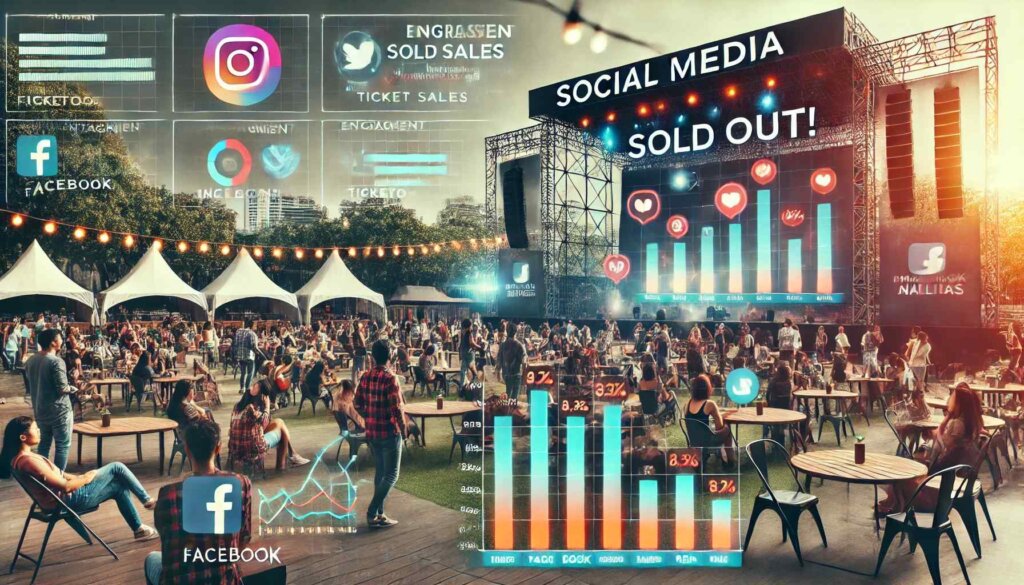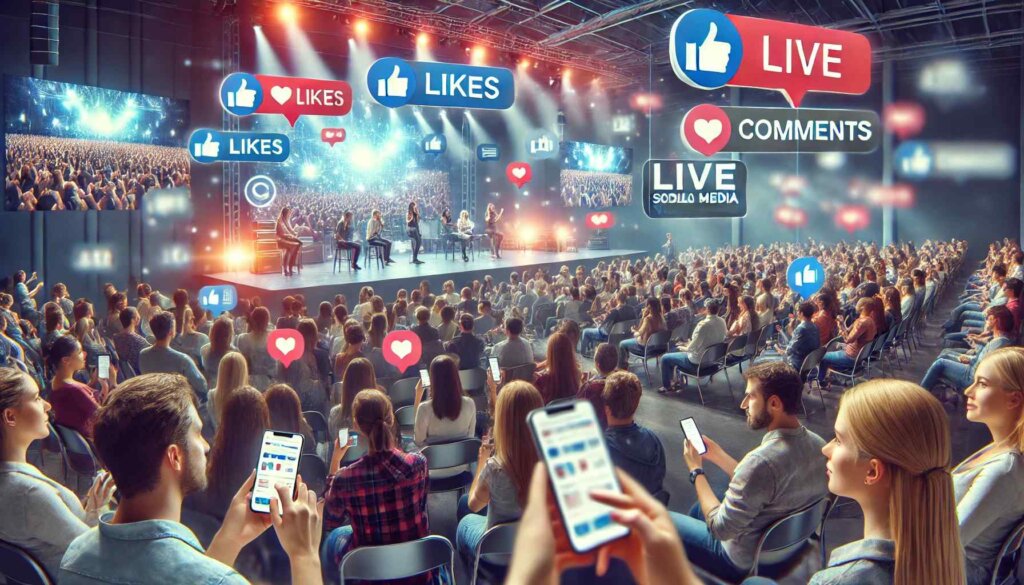
Event marketing has evolved drastically over the years. Gone are the days when posters and flyers were the go-to methods for promotion. Today, social media stands as a powerful tool, connecting planners, vendors, and attendees in ways that were unimaginable decades ago. But what role does social media play in making events successful? Let’s explore, weaving in a relatable story along the way.
A Relatable Story: How Social Media Saved Emma’s Event
Emma had spent months planning her first-ever charity gala. She had the venue, a great lineup of speakers, and an incredible cause to support. But just three weeks before the event, ticket sales were alarmingly low. Emma panicked. Her printed posters had reached only her local community, and word-of-mouth wasn’t spreading fast enough.
A friend suggested using social media. Skeptical but desperate, Emma created event pages on Instagram and Facebook. She shared stories about the charity’s mission, posted sneak peeks of the preparations, and encouraged people to share her posts. She even collaborated with a local influencer to promote the event. To her surprise, ticket sales skyrocketed in just a few days, and the gala was a massive success.
Emma’s story, though fictional, shows how social media can breathe life into an event, turning potential failure into resounding success.
Benefits of Using Social Media for Event Marketing

1. Increased Reach and Engagement
Social media platforms connect you to a global audience. Unlike traditional methods, your message isn’t limited to one city or neighbourhood. Through engaging posts, interactive stories, and live videos, you can capture attention and spark interest among people who may not have heard about your event otherwise.
Platforms like Instagram and TikTok, with their visual appeal, are particularly effective for showcasing event highlights, while LinkedIn is ideal for professional gatherings.
2. Cost-Effective Promotion
For event organisers working with tight budgets, social media offers affordable advertising solutions. With tools like Facebook Ads or Instagram promotions, you can run targeted campaigns to reach your ideal audience. Compared to traditional advertising, this approach saves money while delivering measurable results.
3. Real-Time Interaction
Social media lets you connect with your audience in real time. Whether it’s answering questions about ticket availability or sharing last-minute updates, platforms like Twitter or WhatsApp help ensure everyone is on the same page.
Effective Social Media Strategies for Event Promotion
1. Identify Your Target Audience
Before diving into content creation, understand who you want to attract. Are they young professionals, families, or industry experts? Tools like Facebook Audience Insights can help you learn about their demographics, interests, and online habits, allowing you to tailor your strategy accordingly.
2. Plan and Schedule Content
Creating a content calendar is crucial. For instance, you could start with teaser posts three months before the event, moving on to behind-the-scenes videos as the date approaches. Regular updates keep your event fresh in people’s minds, ensuring they remain excited.
3. Collaborate with Influencers
Influencers can amplify your event’s visibility. Emma’s story demonstrated how partnering with a local influencer boosted her charity gala’s reach. Look for influencers whose values align with your event’s purpose, as this increases authenticity and engagement.
4. Use Paid Advertising
Sometimes organic reach isn’t enough. Paid advertising on platforms like LinkedIn or Instagram allows you to target specific groups, ensuring your event is seen by those most likely to attend.
Engaging Your Audience During the Event

1. Live Streaming
Not everyone can attend in person, but that doesn’t mean they can’t be part of the experience. Streaming key moments live on platforms like Facebook or YouTube expands your event’s audience and keeps remote followers engaged.
2. Encourage User-Generated Content
Create a unique event hashtag and encourage attendees to use it when posting on social media. This not only increases your event’s visibility but also builds a sense of community. Plus, you’ll have a treasure trove of content to share post-event!
Post-Event Social Media Activities
1. Share Recaps and Highlights
Once the event concludes, keep the conversation alive by posting recaps. Highlight memorable moments, share photos, and even tag attendees who posted using your event hashtag.
2. Gather Feedback
Social media polls or comment sections are great for collecting feedback. Ask attendees about their favourite moments or what could be improved for future events. Not only does this help with planning, but it also shows your audience that their opinions matter.
Measuring Social Media Success
1. Track Key Metrics
Success isn’t just about how many people attended; it’s about engagement, reach, and conversions. Tools like Instagram Insights or Google Analytics help you measure these metrics, providing valuable insights for your next event.
2. Learn and Improve
Every event is a learning experience. Analyse what worked and what didn’t, and use that knowledge to refine your strategies. Continuous improvement ensures each event you host is better than the last.
Conclusion
Social media has transformed the way we plan and promote events. It’s no longer just an optional tool; it’s a cornerstone of modern event marketing. Whether you’re organising a charity gala, a corporate seminar, or a casual meet-up, platforms like Instagram, Facebook, and LinkedIn offer endless opportunities to connect, engage, and succeed.
For vendors, planners, and enthusiasts alike, having a platform that simplifies social media integration is key. That’s where Oyoyo Events App comes in. Not only does it streamline event planning, but it also helps you harness the power of social media, ensuring your events stand out in today’s competitive landscape. Give Oyoyo a try, and make your next event truly unforgettable!